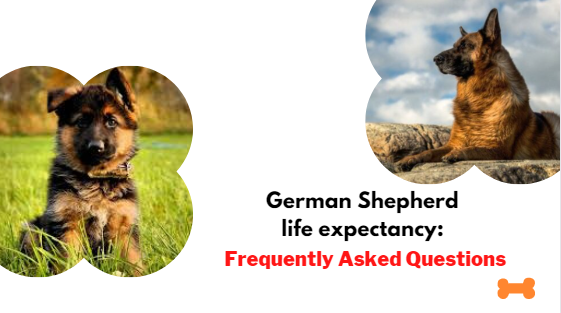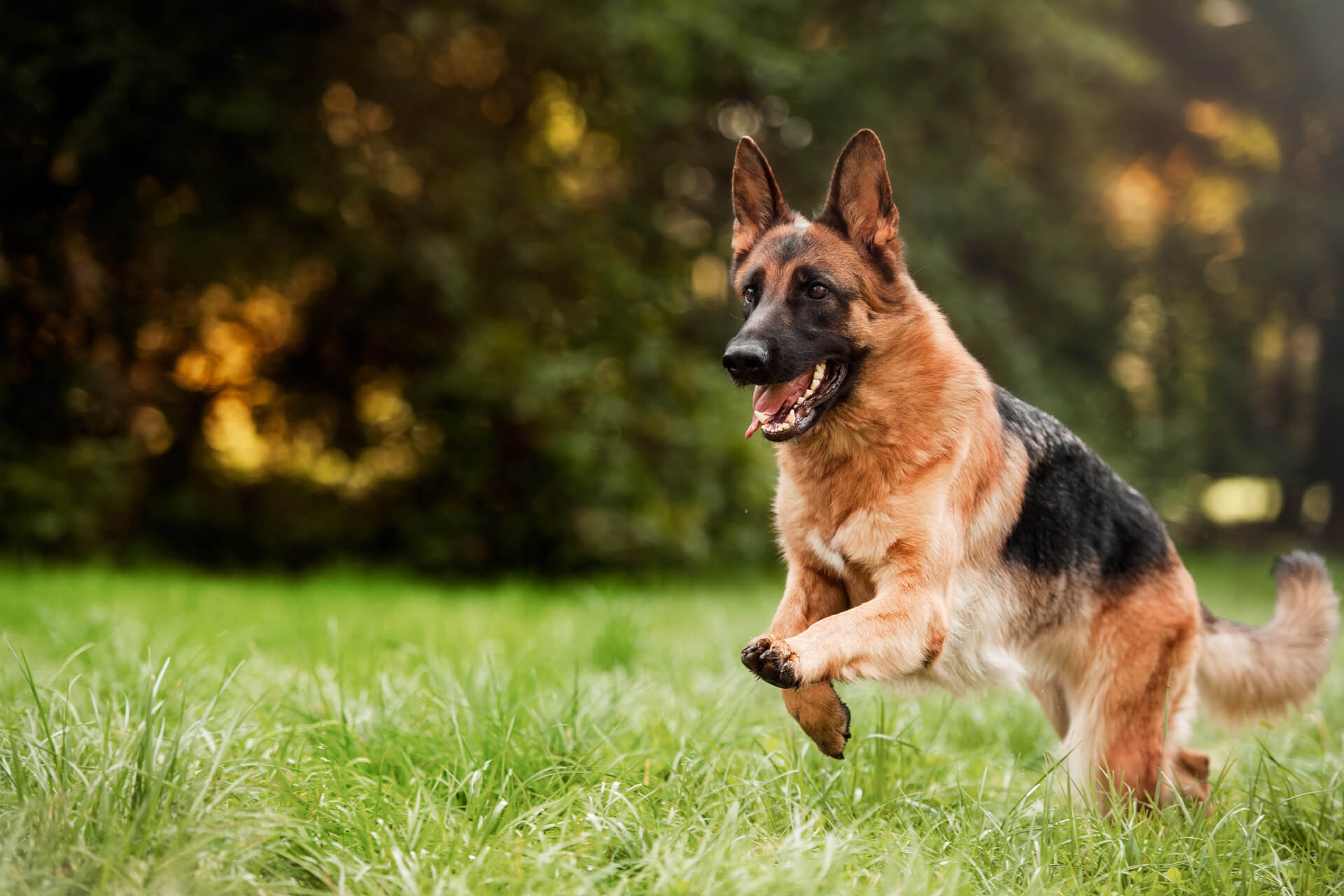How Many Years Does a German Shepherd Live: Unveiling the Lifespan of a Beloved Canine Companion

Table of Contents
As a result of their outstanding good looks and remarkable intelligence, German Shepherds have won the hearts of dog lovers all over the world. If you’re thinking about getting a German Shepherd or already own one, you should know how long the breed typically lives. How long a German Shepherd can expect to live, what you can do to help them live longer, and what kind of senior care they’ll need are all topics we’ll cover in this post.
German Shepherd Lifespan: what do pet owners need to know about this?
German Shepherds are beloved pets in numerous homes due to their intelligence and loyalty. Potential and present owners of German Shepherds often want to know, “How long do German Shepherds live?” In this article, we will examine the typical number of years you can anticipate spending with your furry buddy and the elements that affect the lifetime of these amazing pets.
Lifespan Considerations for German Shepherds. When do German Shepherds reach old age?
Several factors affect how long a German Shepherd may expect to live on average.
- Genetics and breeding in canine adults
Genes have a significant role in determining how long a German Shepherd lives. Breeding practices that aim to limit the prevalence of hereditary disorders have a positive effect on their lifespan.
- The effect of diet and nutrition on the lifespan of German shepherds
For optimal health, a German Shepherd needs to consume a well-rounded diet. Providing them with nutritious food that meets their specific dietary needs can increase their lifespan.
- Getting Your Body Moving and Working Out
Regular exercise is beneficial for German Shepherds for many reasons than just their physical health. Longevity and health can be improved through walking, playing, and mentally pushing oneself.
The German Shepherd, in this instance A puppy’s physical needs extend beyond just food and water. After three months of age, experts claim a German Shepherd puppy can walk for 15 minutes, while an adult dog can walk for an hour. They are not allowed to use the stairs or the floor as a playground. Overworking a puppy increases the likelihood that the dog will develop hip dysplasia, a painful condition that can make the dog limp as an adult.
At the age of two, your dog requires a minimum of two hours of strenuous activity per day. It will help them maintain their current level of performance. Dogs’ health and behavior suffer when they aren’t challenged mentally and physically.
- The existence and reproduction of German Shepherds
The longevity of a GSD is highly sensitive to its breeding environment. Dog breeders frequently put mental and emotional health ahead of visual appeal. Because many diseases have recessive causes, inbreeding is practiced. The effects of overpopulation can be devastating. Safer outcomes can be achieved by line breeding as compared to in-family breeding. Because of this, German Shepherds live longer than other dog breeds while keeping their lovable personalities.
Max von Stephanitz employed line breeding to create a superior dog, which led to the development of the breed. However, the dog’s body structure, health, and longevity have all suffered as a result of years of competition in American Kennel Club conformation contests. Deformities emerged as a result of selective breeding for a trait that had become rare: a modest slope of the back. Excessive swayback may pose certain health hazards.
- Wellness Checkups
The early detection and treatment of health problems is facilitated by frequent veterinarian care, including immunizations, parasite control, and checkups.
- Aspects of the Natural World
The living environment, exposure to toxins, and overall care received also influence a German Shepherd’s lifespan.
The Typical Lifespan of a German Shepherd 
German Shepherds often live around 9–13 years. However, with exceptional care and genetics, some people may live much longer than that. It’s worth noting that the aforementioned variables can have a significant impact on how long a person lives.
Female canines often outlive their male counterparts by an average of 1.4 years. Male German Shepherds have a shorter median lifespan of 9.7 years compared to the females’ 11.1 years.

German Shepherds, like other dog breeds, have the potential to live longer than expected. German Shepherds, according to hearsay, can survive until their late teens (about 18-20 years old). A German Shepherd mix in Scotland reached the milestone age of 15 in 2017. A dog was left at a shelter in Gardena, California, in 2014. The shelter workers estimated that the dog was 17 years old at the time.
The longevity of a German Shepherd can be increased by:
- A Well-Rounded Menu for Your German Shepherd
Give them food that includes all the necessary nutrients, like protein, carbs, fats, vitamins, and minerals. For information on proper feeding sizes and types, talk to your vet.
- Keeping Active On A Consistent Basis
Maintaining a healthy weight, good muscle tone and a bright mind in your German Shepherd can be achieved by regular exercise and mental stimulation.
- Wellness Checkups
Make sure to take your pet in for checkups, vaccinations, and other preventative care on a regular basis. If you have any questions or concerns about your dog’s health, your vet is a great resource for advice.
- A Secure Setting
Make sure your German Shepherd dog is living in a secure and chemical-free environment. Keep them as safe as possible from potentially hazardous substances.
If you have German shepherd puppies, you have probably wondered how long German shepherds live. Even though dogs are highly valued for their intellect and adaptability, they are not immune to health problems that might shorten their lives. Knowing about these risks and taking preventative action can lengthen and improve the health of your dog’s life.

Hip and elbow dislocation
German Shepherds frequently experience orthopedic problems like hip and elbow dysplasia. Incorrect joint development is at the root of many disorders, which can cause pain and limited motion. Your dog’s life expectancy can be improved with preventative measures like regular exercise, weight management, and joint supplements.
German Shepherd lifespan: The deterioration of the spinal cord
Degenerative myelopathy is a degenerative disease of the spinal cord that causes gradual weakening and paralysis of the back and pelvic limbs. Your German Shepherd’s quality of life can be enhanced with early diagnosis, physiotherapy, and supportive care even if there is currently no treatment.
Gastric dilatation-volvulus (or bloat)
The fast enlargement of the stomach, typically followed by twisting, is a hallmark of bloat, a potentially fatal illness. This can cause blood flow restriction and tissue injury. Smaller, more frequent meals, no exercise right after eating, and paying attention to your dog’s eating habits can all help lower the risk of bloat.
Deficiency of exocrine pancreatic function (EPI)
Malnutrition and weight loss occur as a result of EPI because of the pancreas’ inability to produce enough digestive enzymes. The health of your dog can be efficiently controlled with the help of therapeutic options like enzyme supplementation and a tailored diet.
Dog osteoarthritis, or degenerative joint disease
German Shepherds often suffer from osteoarthritis, a degenerative joint disease. It brings discomfort, immobility, and stiffness. Your dog’s comfort and health can be improved through measures like weight control, low-impact exercise, joint supplements, and pain treatment.
Allergic reactions
Allergies in German Shepherds can be caused by a wide variety of things, including pollen, dust, and even some foods. As a result of an allergic reaction, the skin may become red, itchy, and uncomfortable. By working with your vet to pinpoint triggers and implement control measures, you can reduce your dog’s allergy symptoms and enhance his or her quality of life.
Health Issues in the German Shepherd Breed
German Shepherds are susceptible to heart disorders such as dilated cardiomyopathy and heart murmurs. Maintaining your dog’s heart health is possible with routine cardiac examinations, a heart-healthy diet, and, if necessary, medication.
German Shepherd lifespan: Cancer
Many dog breeds, including German Shepherds, are at risk for developing cancer. Regular veterinary examinations and screenings are not always preventative, but they can lead to more efficient treatment and a better prognosis.
Your German Shepherd’s lifespan and quality of life may be dramatically affected by your ability to recognize and treat certain health issues. You can make sure your beloved pet has a long, healthy life by being watchful, taking them to the vet frequently, and taking other preventative precautions.
How to Maintain a Healthy Lifespan in Your German Shepherd 
German Shepherds are well-known for their intellect and loyalty, so it only makes sense that they receive the best care possible. These guidelines can help you keep your dog in top shape, whether you’re a first-time dog owner or an old pro.
German Shepherd Lifespan: Proper Nutrition and a Healthy Diet
Your German Shepherd’s health depends on you giving it nutritious food. Pick a premium dog food that is appropriate for your dog’s age, activity level, and nutritional requirements. In order to sustain their vitality, growth, and health, you should offer them options that contain real meat, full grains, and critical nutrients.
If you want to maintain your giant dog breed healthy, you shouldn’t overfeed it or give it a lot of sugary snacks. Make sure that youngsters eat a healthy diet rich in fruits and vegetables and low in sugary snacks. Choose a brand that is low in carbohydrates while still providing a high percentage of protein (18-22%).
German Shepherds as adults shouldn’t weigh more than 90 pounds, and feeding them more than 2100 calories a day will lead to weight gain. If your pet isn’t particularly active, you shouldn’t feed them more than 1500 calories per day.
Physical activity and mental stimulation have a positive effect on longevity.
Maintain a routine of exercise and mental stimulation for your dog. They stay physically fit and mentally stimulated thanks to daily walks, games, and engaging toys. Training sessions not only help your pet become more obedient, but they also strengthen the link between you and your pet.
Preventative Medicine, Annual Vet Checkups
Preventative care that includes regular visits to the vet is essential. Maintain regular checkups, including dental care, vaccines, and treatment for parasites. Visits to the vet on a regular basis will allow them to keep tabs on your German Shepherd’s health and handle any issues as soon as they arise.
Keeping a dog’s teeth and gums in good shape is an important part of keeping the dog healthy overall. It’s been scientifically established that most of their ailments travel from the mouth (the dog’s teeth) outward. If this disease travels through the blood and affects their lungs, heart, and kidneys, it might cut their life expectancy in half. This is why it’s important to give your dog a dose of dog toothpaste every day and give him lots of safe chew items like bones and toys.
German Shepherd Lifespan: Hygiene and Appearance 
Maintaining a clean and healthy coat on your dog requires regular maintenance. Matted fur can be avoided and natural oils distributed by brushing their fur regularly. Avoid any future health problems by keeping their nails clipped, ears clean, and teeth in good condition- german shepherds lifespan.
Survival of the Fittest: Overeating in Dogs 
Your German Shepherd’s general health depends on him staying at a healthy weight. Many health issues are linked to obesity. If you want your dog to be within a healthy weight range, you should talk to your vet about making some changes to their diet and activity routine.
Formation and Indoctrination 
A well-adjusted German Shepherd is the product of early socialization. Build their self-assurance and good manners by introducing them to new situations and individuals. Obedience training helps keep the peace at home and improves their mood.
Improvement of the Mind 
Puzzles, interactive toys, and interesting hobbies are great ways to exercise your German Shepherd’s brain. Boredom can lead to negative behavior and mental enrichment can assist prevent it.
Hydration 
Make sure that there is always a supply of clean water available. Maintaining an adequate water intake is crucial for digestive, circulatory, and general well-being.
Security and Precaution 
Take precautions to make your house and yard secure for your German Shepherd. To avoid injuries and poisoning, pet owners should eliminate potential dangers, reinforce fencing, and use pet-friendly products.
Routine Veterinary Exams 
Plan on seeing your veterinarian regularly for checkups and preventative care. Your veterinarian will be able to provide you with individualized recommendations for your German Shepherd.
You still have ongoing responsibilities for the health, development, and training of your German Shepherd puppy. This will provide the best foundation for your German Shepherd’s health and longevity.
Nutrition, exercise, preventative care, and loving attention will go a long way toward keeping your German Shepherd happy and healthy. If you adopt these habits, you may ensure a long, healthy life for your faithful friend.

German Shepherd life expectancy: Frequently Asked Questions
German Shepherd life expectancy: Frequently Asked Questions
Can a German Shepherd live 20 years?
A German Shepherd’s life expectancy is around 12–15 years, so while it’s possible for one to live to be 20, it’s far outside the ordinary. Female dogs often outlive their male counterparts by an average of 1.4 years.
An adult dog’s longevity is affected by many things, including genetics, nutrition, exercise, and general care. Some dogs may live longer than the average, although 20 years old is quite unlikely.
What is considered old for a German Shepherd?
Like other dog breeds, German Shepherds go through a series of changes as they age. The specific meaning of “old” might vary depending on factors such as a dog’s health and heredity, but in general, it is accepted that German Shepherds enter their senior years around the age of 7 or 8. At this point in life, persons may encounter changes in their physical and mental capacities associated with aging.
Some changes you might see in an aging dog include:
- Aging German Shepherds may become less energetic and need more rest as they age.
- Stiffness in the joints can be a result of arthritis or other joint problems, limiting the person’s mobility.
- The fur of German Shepherds, like that of people, can turn silver or white with age.
- Potential Dental Disorders Declining dental health is associated with an increased risk of future dental disorders.
- Because their metabolisms may be slower, senior dogs need careful attention to their weight in order to avoid becoming overweight.
- Dementia and other forms of cognitive decline have been observed in senior dogs, including certain German Shepherds.
During your German Shepherd’s golden years, he or she will want special attention. The comfort and well-being of an elderly pet can be ensured by preventative care at the vet, a healthy diet, low-impact exercise, mental stimulation, and environmental adjustments.
Is 7 years old for a German Shepherd old? 
A German Shepherd’s seventh year is not exactly old in dog years. Between the ages of 7 and 10, a German Shepherd is at his or her peak. There are many examples of senior German Shepherds who are still active and healthy.
Average German shepherd lifespan – 10-13 years.
When a German Shepherd reaches the ripe old age of 7 or 8, it may have already begun to show the telltale signs of aging, such as a gradual deterioration in its physical and mental abilities. At 7, a German Shepherd is still considered middle-aged, and it can expect to live for many more years of good health and happiness.
If you provide your 7-year-old German Shepherd with high-quality food, regular exercise, and veterinary care, he or she will live a long and happy life.
Is 12 years a long life for a German Shepherd?
German Shepherd facts: The typical German Shepherd lives for 12 years. The average lifespan of a German Shepherd is 9–13 years. At the age of 12, your German Shepherd has already lived longer than 50 percent of all dogs are expected to survive.
As dogs age, they may experience shifts in their energy and general health. If you give your German Shepherd the care they require in old age, including regular veterinary exams, a balanced diet, moderate exercise, and a peaceful, pleasant house, they will live longer and be happier.

The life expectancy of an indoor-only German shepherd dog? How long do German Shepherds live?
The life expectancy of an indoor-only German shepherd dog? How to long do German Shepherds live?
An indoor German Shepherd can expect to live the same 9–13 years as an outdoor dog. A dog’s health and lifespan may be affected by a number of factors, one of which is the owner’s lifestyle and the surrounding environment.
Can you tell me how long a German Shepherd dog usually lives?
Depending on the conditions, a German Shepherd can live anywhere from 9 to 13 years.
If I want my German shepherds to live a long and happy life, what should I do?
Your German Shepherd will benefit greatly from a healthy diet, regular exercise, preventative veterinary treatment, and mental stimulation if you want him to live a long and happy life.
I was wondering if German Shepherds were prone to any particular illnesses?
Hip dysplasia, arthritis, and degenerative myelopathy are all conditions that can affect large dog breeds. Having your pet examined by the vet on a regular basis will help you keep an eye on any symptoms and control any health problems.
When will I know that my aged dog needs to be put to sleep?
The choice to part ways is never simple. If you see a severe decline in your German Shepherd’s quality of life, it’s important to get advice from a veterinarian.
In conclusion, knowing what affects a German Shepherd’s longevity will allow you to give your dog the best possible care. Your German Shepherd’s long, happy, and healthy life can be ensured via proper feeding, exercise, veterinary treatment, and mental stimulation at all ages.







